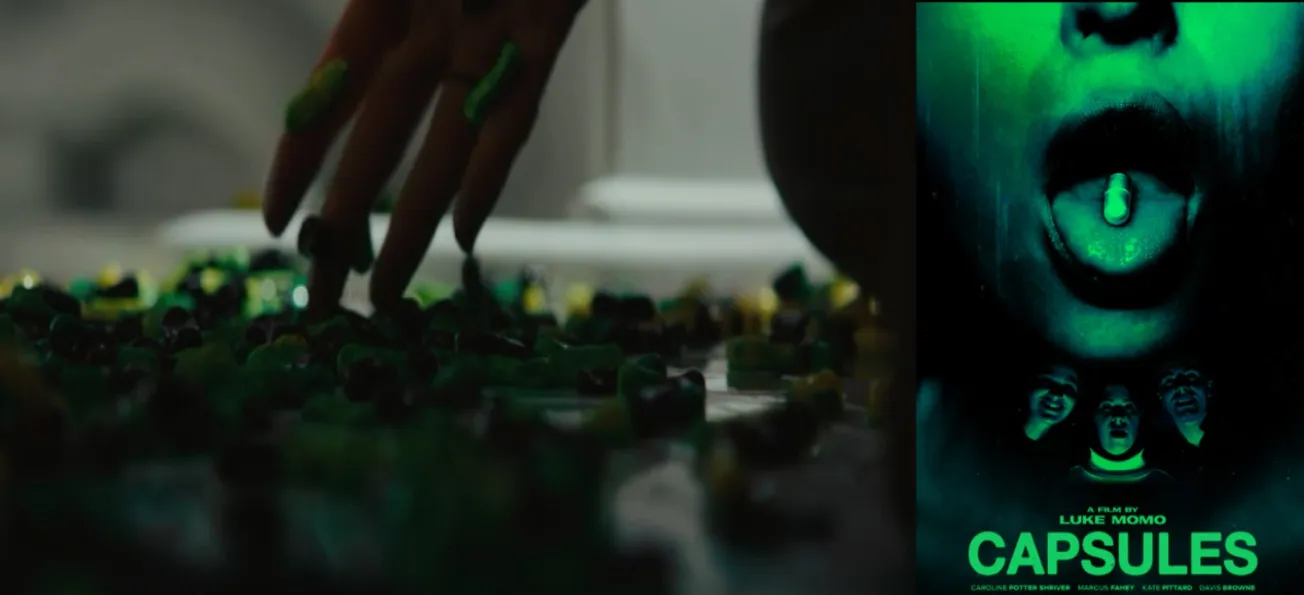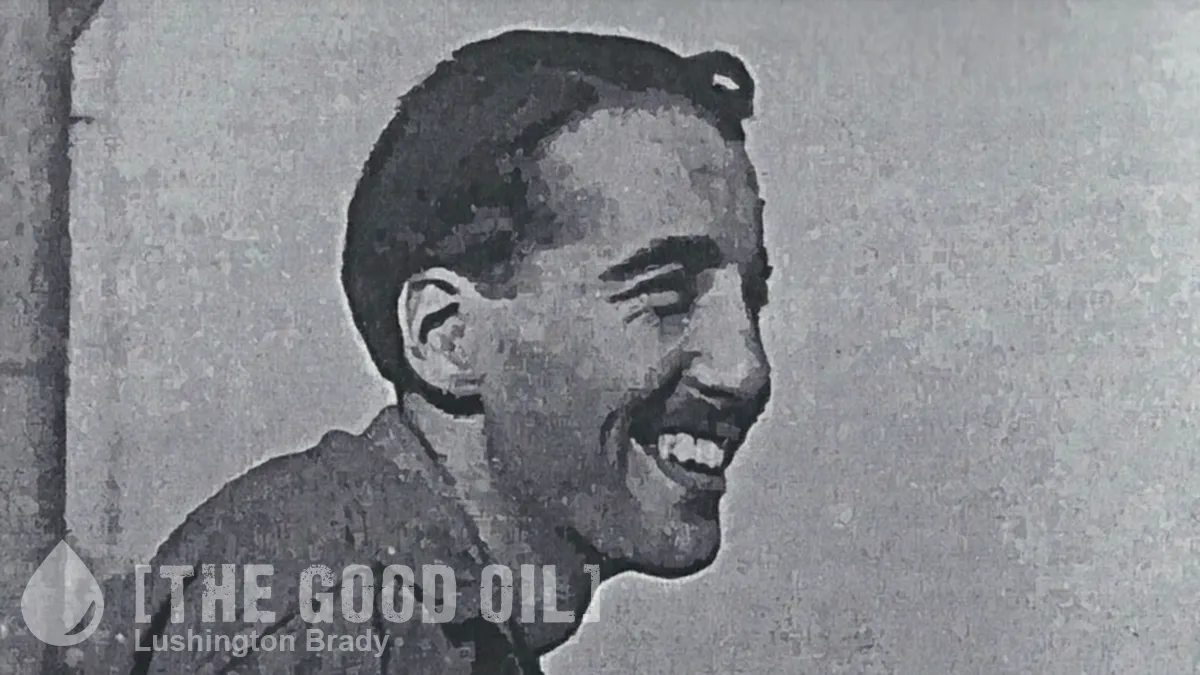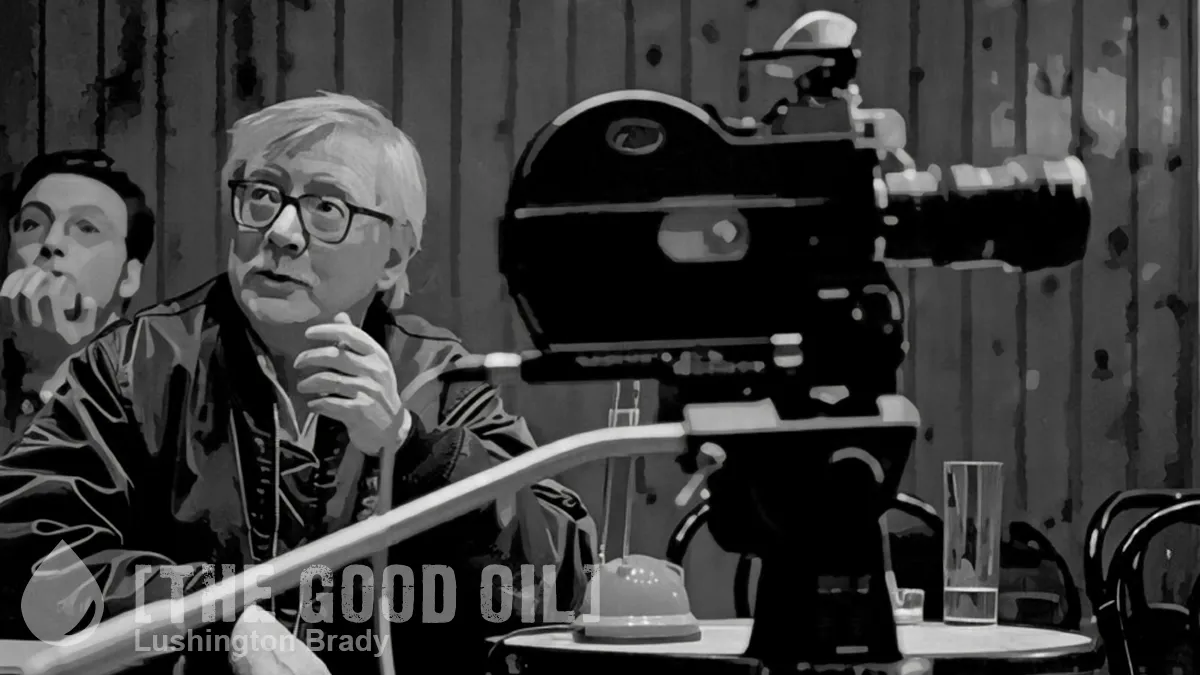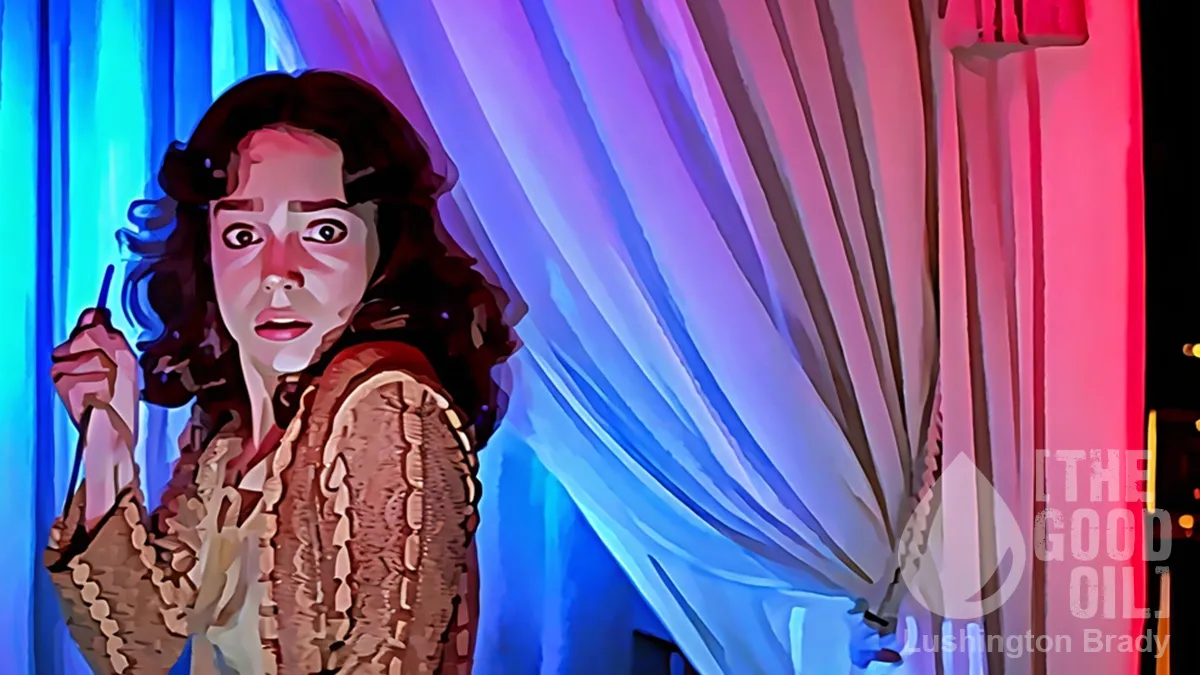Table of Contents
Luke Momo
Luke Momo is the director of ‘The Stamp Collector’ (2021) and ‘Capsules’ (2022).
Sophia Martinson
Sophia Martinson is a wife and mom with a passion for reading, writing, and home arts. She is a freelance culture writer for various publications, and her blog, Homemaker Hopeful, explores the skills of taking care of home and family.
Martinson: What drew you to filmmaking?
Momo: I always had an innate draw towards filmmaking and storytelling generally. When I was a child, I was more of a painter, actually. For one year, I went to the preschool connected to our local parish in Pennington, New Jersey, and I was drawing all the time. There was a showcase at the end of the year … and I did a big canvas of the dinosaurs … and I remember the parish priest came up to me and said, “Oh, this is great! Congratulations.” So I was encouraged at a young age to be an artist. I lost the painting ability … but I just kind of transformed it into filmmaking, which is sort of like 3D painting.
In the fall of 2013, I attended The Grade high school leadership program at Schuyler Hall, a center of Opus Dei in New York City. It was a professional development seminar woven in with classical virtue ethics theory in the tradition of the faith.
One day they brought a filmmaker named Tim Reckart. He had worked for Charlie Kaufman on “Anomalisa” and had directed his own feature film, “The Star,” a Christian film. I’ve since kept a correspondence with him, which has been very powerful. He showed us that filmmaking is a very difficult industry to be a part of but also that there’s a lot of craft, care, and attention to detail. And it was that day that I realized, “Wow, I can really integrate this into my life.”
Martinson: How do you incorporate filmmaking into your life today?
Momo: I do a lot of accounting work and some marketing work for my family’s restaurants, the Terra Momo Restaurant Group in Princeton, New Jersey. When I’m not there, then I’m very much in an active filmmaking kind of mode. That could be a plethora of different things. Mostly it’s watching films, reading to find material for films, or reading about film and film theory. And then just making films.
Martinson: How did you come up with the idea for “Capsules”?
Momo: The story of “Capsules” came from multiple places at once, and it just clicked. … There are people in my life who shared with me their experiences with substance abuse. I wanted to do something that sort of had a cautionary tale about incredibly dangerous behaviour, but I also wanted it to be done in a way that tries to be understanding and not judgmental.
Here’s a quote I had thought about putting in front of the movie. To me, this is “Capsules”: “Drugs are a waste of time. They destroy your memory and your self-respect and everything that goes along with your self-esteem.” That is [punk rock singer-songwriter] Kurt Cobain.
When people hear, “Drugs are a waste of time,” from a police officer, they don’t internalize it. When Kurt Cobain says it, that really hits hard, because here’s someone who really is a counterculture figure and realizes the emptiness of drugs.
Here’s a different example. When you watch the films of Josh and Benny Safdie, I would say they have a kind of Jewish mysticism going on underneath their films. I would say I have more of a kind of Catholic mysticism going on underneath my films.
The Safdies say, “If you make the white-elephant films that are loudly about something, then people walk in with a certain agenda. But if you make a movie that’s considered garbage, like a crime film, you’re playing with a more interesting space because it’s considered disposable. It’s like tricking a kid into eating cereal. You put a cartoon on the cover of the box, but inside it’s really filled with a bunch of vitamins.”
I want people to go and see “Capsules” for the more superficial, sugary aspects of it. But hopefully they walk away from it with a healthier, richer, deeper perspective on their experience and their choices.
Martinson: What was the most challenging part of making “Capsules”?
Momo: Managing a lot of different people and a lot of different ideas. I think the filmmakers who can stay on the cutting edge and stand up to these challenges are really able to be a very strong leader of people, to be deeply aware of the human condition, and to proceed from that starting point with great humility and respect.
Martinson: Who is the target audience?
Momo: Probably high school students who are 18 years old and up through university students. I think Dante wrote that artists in the afterlife go through this river where they can experience their work as not their own. I wish I could have seen this film at 18, so to me, that would be the dream audience.
Martinson: What directors and films have made the biggest impact on you?
Momo: When watching a film you want to be enchanted … but you also want it to have a really strong moral message and theme. Martin Scorsese will say he’s looking to try and get some kind of reflection of his faith across in his films. I feel in a very similar way that I’m trying to get across the experiential.
Kie?lowski’s “Dekalog” [film series] really does that in a powerful way. I was floored when I saw it. His cinematic contribution is a meditation on the Ten Commandments. In the meditation on the first commandment, “I am the Lord, thy God, thou shalt have no other gods before me,” he supposes that — the way I interpret it — technology can be perceived as a god, and specifically computer technology. And it’s just very interesting because that theme [in the late 80s] was incredibly prophetic.
We have so much faith in our technology now, and it makes you wonder, “What do I have my faith in?” Kie?lowski himself will say he’s agnostic, but at the same time, he’ll say he wishes everyone in Poland would live by the Ten Commandments. Artists can be very complicated and paradoxical.
Martinson: Other films?
Momo: I think Christopher Nolan’s “The Dark Knight” from 2008 is superior in every way to Todd Phillips’ “Joker” from 2019 … I don’t think you could have a Joker movie without Batman. You have to see good and evil together to experience the power of that narrative.
Heath Ledger’s Joker is infinitely more interesting than Joaquin Phoenix’s Joker, because he really has no regard and no care for life. He is an agent of chaos and death. And he’s incredibly engrossing to watch, because at every turn, just like the shark in “Jaws,” he is death and horror and everything wrong with the world coming face-to-face with you. And to see Bruce Wayne/Batman, Commissioner Gordon, and Harvey Dent deal with this evil is much more engrossing than Joker’s attempt to paint in a sympathetic light someone who is truly morally abhorrent.
Martinson: Incorporating Christian themes ranges from the direct and explicit (the recent series “The Chosen” comes to mind) to the more implicit (such as the “Dekalog” films). Do you have a preference?
Momo: I think the Safdies’ example about the cereal box is really a great one. As a kid, if my parents said, “Hey, have this broccoli,” I’d say, “No, I don’t want that.” Broccoli may have been the best possible thing that I could have had, but when I looked at it, I didn’t want it.
I’m not suggesting that I think people should only see movies like “Capsules” or “The Dark Knight” … What I would encourage is for people to be very open and really intellectually curious. Watch different films and also read widely, especially if you’re in a faith tradition like ours, Catholicism. Read the Bible, have these engagements. …
I’m not sure which one is a stronger evangelical tool. I tried to show my mom “The Dark Knight,” and she didn’t like it — she thought it was horrifying!
That’s the thing I find so powerful about Pope Francis’ emphasis on mercy, a non-judgmental sort of view of things, because you don’t really know what gets through — but you know, someone knows. I think God knows.
Martinson: What’s the next step?
Momo: I am focused on the release of “Capsules,” and just right now I’m trying to discern where to go next with my films.
Martinson: Any words of advice for aspiring artists?
Momo: Here’s a Stanley Kubrick quote: “The best education in filmmaking is to make a film.” So you just have to do it. Kubrick was a big chess player and you play chess in terms of what story you choose, how you want to go about it, and really try to balance those things. You have to think about it in a strategic way. And then be open to the fact that it’s art, and you’re incredibly emotionally involved.
“Capsules” is available to watch online for free on Tubi as well as TVOD (transactional video on-demand) platforms, including Apple TV, Amazon Prime, and Vudu. The transcript of the interview has been edited for grammar and clarity.









